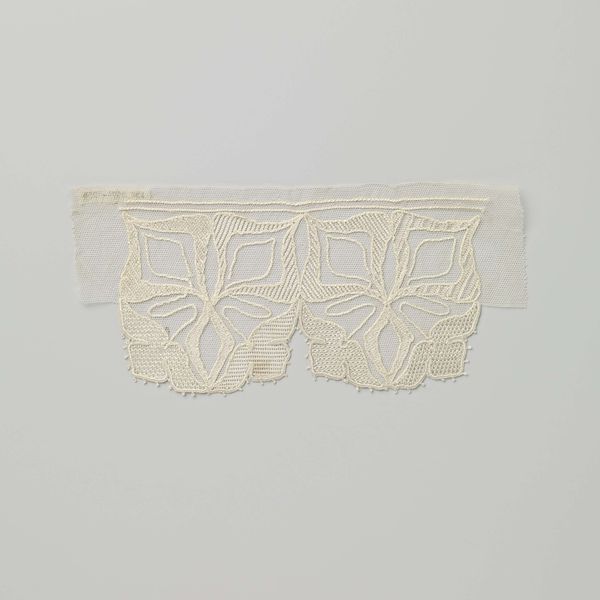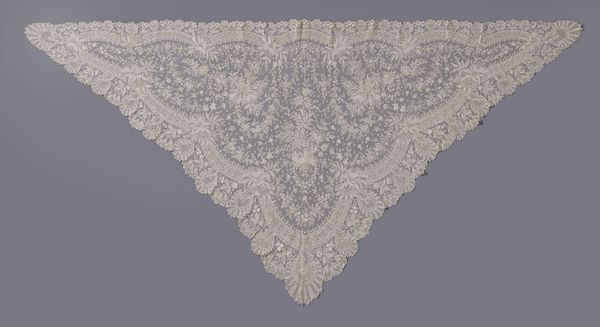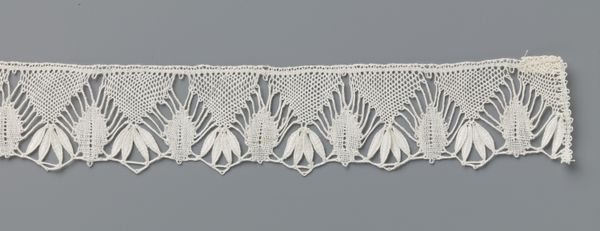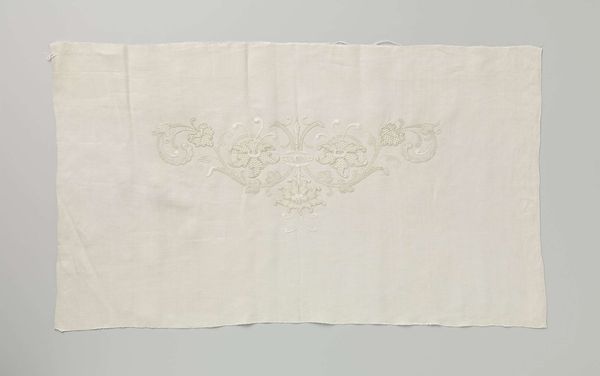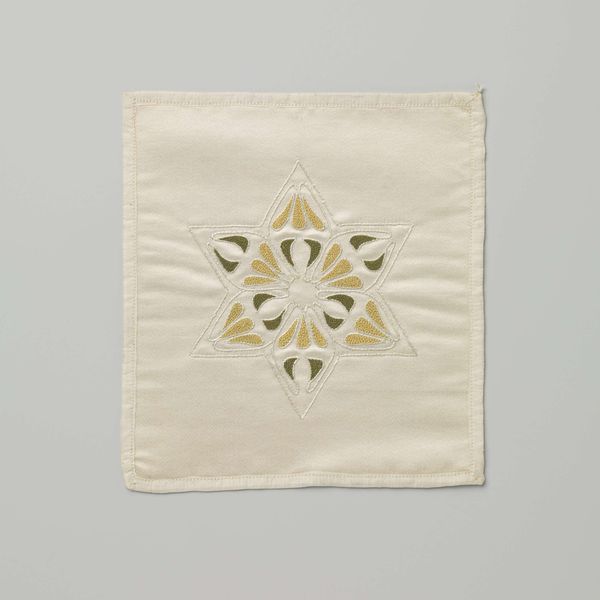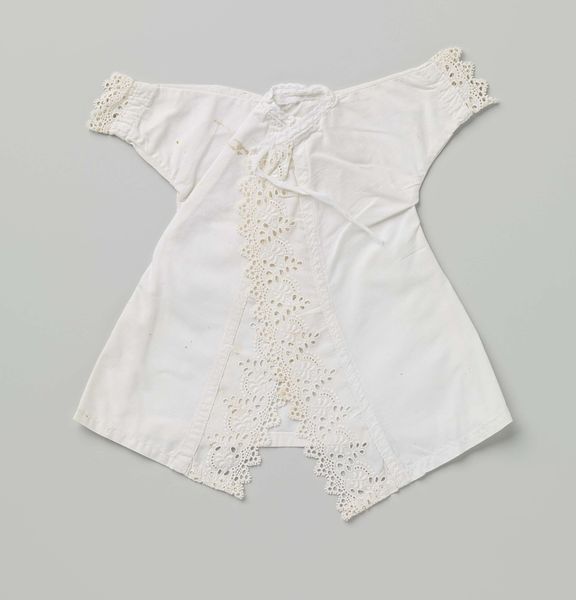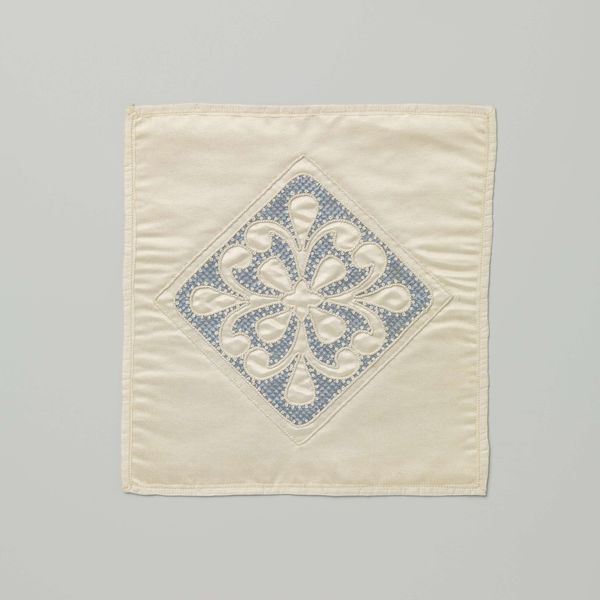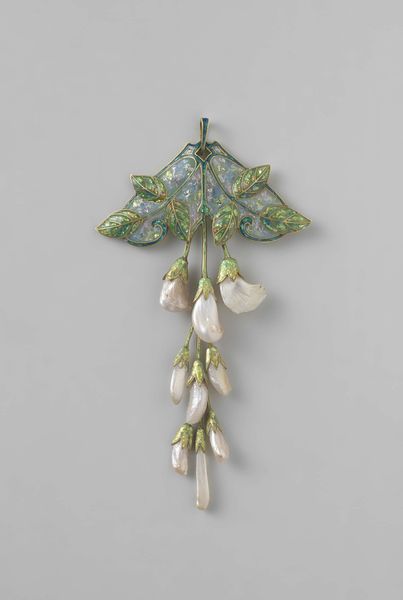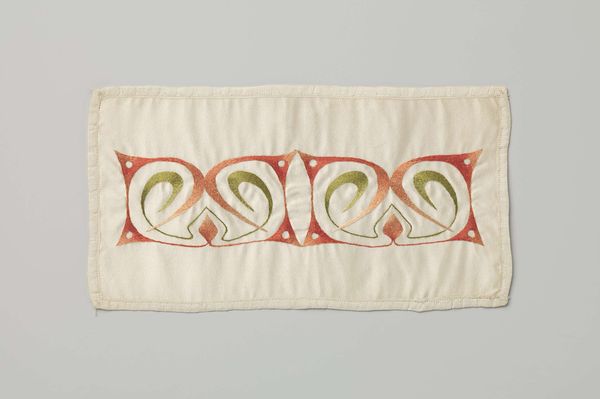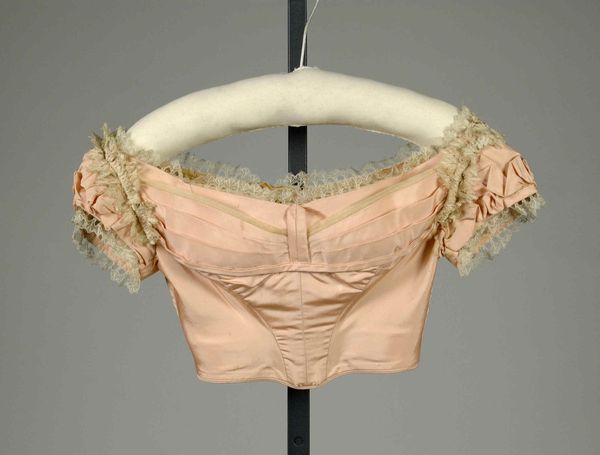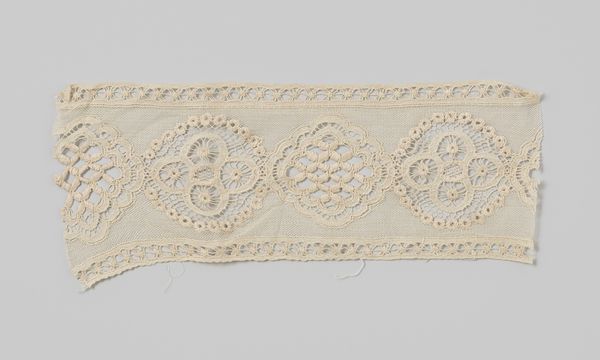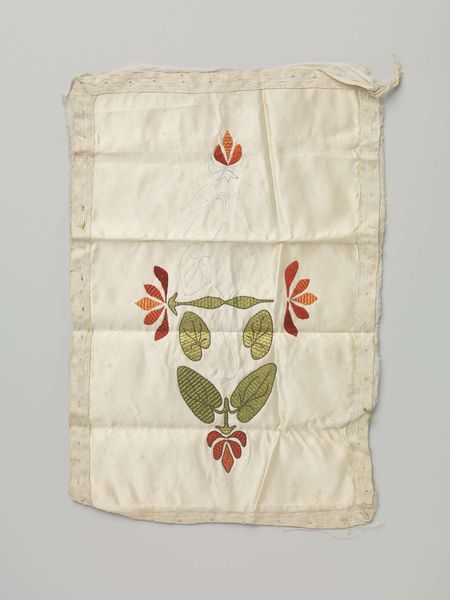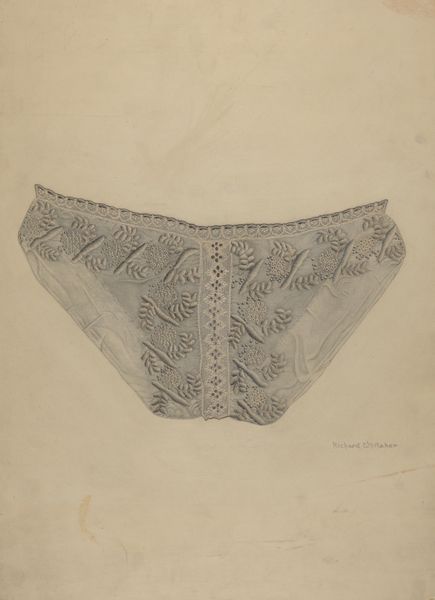
fibre-art, weaving, textile
#
natural stone pattern
#
fibre-art
#
organic
#
art-nouveau
#
weaving
#
textile
#
form
#
geometric pattern
#
abstract pattern
#
repetitive shape and pattern
#
minimal pattern
#
organic pattern
#
geometric
#
simple pattern
#
repetition of pattern
#
line
#
pattern repetition
#
decorative-art
#
layered pattern
Dimensions: height 14 cm, width 19 cm
Copyright: Rijks Museum: Open Domain
Editor: This delicately woven textile, titled "Driehoekig wit handwerk met Jugendstilmotief", roughly translated as "Triangular white needlework with Art Nouveau motif", created around 1900 by Aagje Tiket, is quite striking. Its ethereal nature and restrained color palette evoke a sense of understated elegance. How do you interpret this piece within its historical context? Curator: Well, seeing as this piece embodies the Art Nouveau style, it is vital to remember the social and artistic landscape that influenced its creation. Art Nouveau was a reaction against industrialization and academic art, aiming to integrate art into everyday life. This piece, with its organic motifs and emphasis on handcraftsmanship, certainly reflects that ethos. How do you think pieces like this altered domestic space at the turn of the century? Editor: I hadn’t considered its practical impact. The democratization of design is definitely visible, but were pieces such as these widespread among households? Curator: Initially, this piece would likely have adorned the homes of the upper-middle class, symbolizing wealth and good taste through its intricate designs. As Art Nouveau principles gradually permeated society, it’s likely similar designs became more widely produced, impacting taste, interior decor magazines and home life more broadly. Can we really separate aesthetic choices from socio-political standing? Editor: That's an excellent point! It brings home how the seemingly 'pure' aesthetic choices of art always operate within a network of social signals. It encourages me to look closely and carefully at art and beyond, too. Curator: Precisely! It’s fascinating to observe how aesthetic trends intersect with class dynamics and societal changes and to question our assumptions about ‘art’ as well as ‘craft’. This piece serves as an illuminating example of the artful commingling of taste, social display and class, too.
Comments
No comments
Be the first to comment and join the conversation on the ultimate creative platform.
